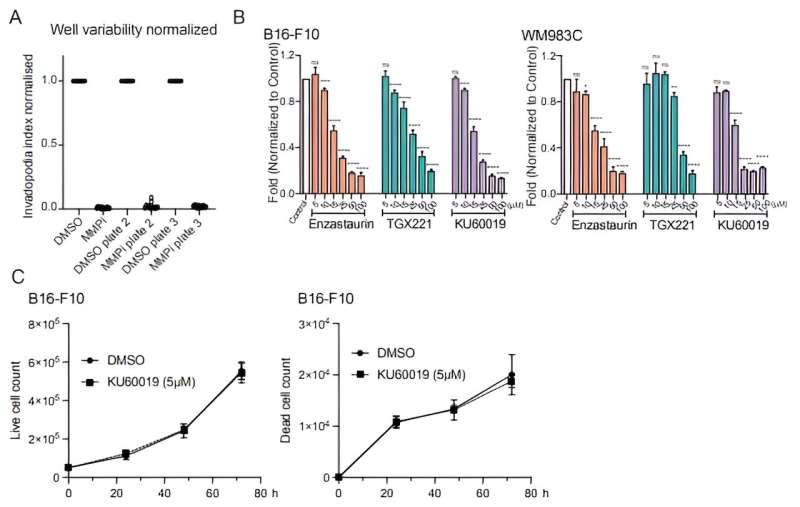This article has been reviewed according to Science X's editorial process and policies. Editors have highlighted the following attributes while ensuring the content's credibility:
fact-checked
peer-reviewed publication
trusted source
proofread
Skin cancer: New therapy option to prevent metastases

As an extremely aggressive form of skin cancer, cutaneous melanoma, is still associated with a high mortality rate. Enormous progress has recently been made in the fight against deadly metastasis, but existing therapeutic measures are still not effective in many cases.
Now a research team led by Wolfgang Weninger and Shweta Tikoo from MedUni Vienna's Department of Dermatology has discovered a new option that targets the metastatic capacity of melanoma cells. The results of the study pave the way for the development of a new class of drugs and have recently been published in the journal Proceedings of the National Academy of Sciences.
Side effects, resistance, and limited efficacy of targeted therapies and immunotherapeutics are the problems encountered in the treatment of metastatic melanoma despite enormous medical advances over the past 10 years. "In addition, there are still no drugs that directly target the metastatic ability of melanoma cells," say study leaders Weninger and Tikoo, describing the starting point for the research work.
In their search for a treatment option that could not only combat the spread of cancer, but even prevent it, the research team focused on the complex process of metastasis. A key feature of this process is the formation of so-called invadopodia. These are cellular structures that are formed by cancer cells to make it easier for them to penetrate the surrounding tissue. A protein called F-actin is also involved in this process.
Preventing the spread of cancer
With the help of a specially developed, highly complex "invasion block" screening platform, the researchers examined 4,000 already approved substances for their ability to virtually put a stop to the formation of invadopodia in order to prevent the spread of tumor cells. "We identified kinase inhibitors as promising therapeutics," says Tikoo, describing the findings.
Kinases are enzymes that play a decisive role in the transmission of signals within cells. Kinase inhibitors, in turn, are substances that can block certain signaling pathways, for example, to curb the excessive growth of cancer cells.
"Our study has paved the way for the development of potential anti-metastatic drugs," state the researchers. Tikoo is convinced that "future research will focus on developing this option for therapeutically combating the metastasis of cutaneous melanomas."
More information: Dajiang Guo et al, Invasion-Block and S-MARVEL: A high-content screening and image analysis platform identifies ATM kinase as a modulator of melanoma invasion and metastasis, Proceedings of the National Academy of Sciences (2023). DOI: 10.1073/pnas.2303978120



















